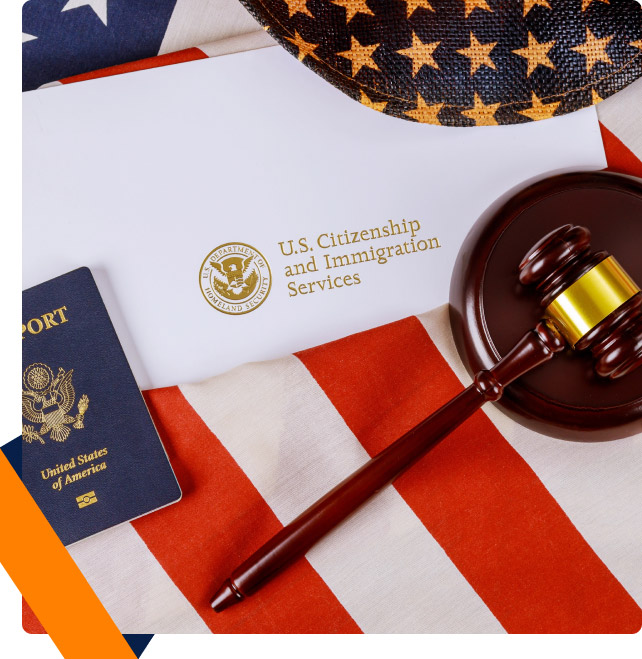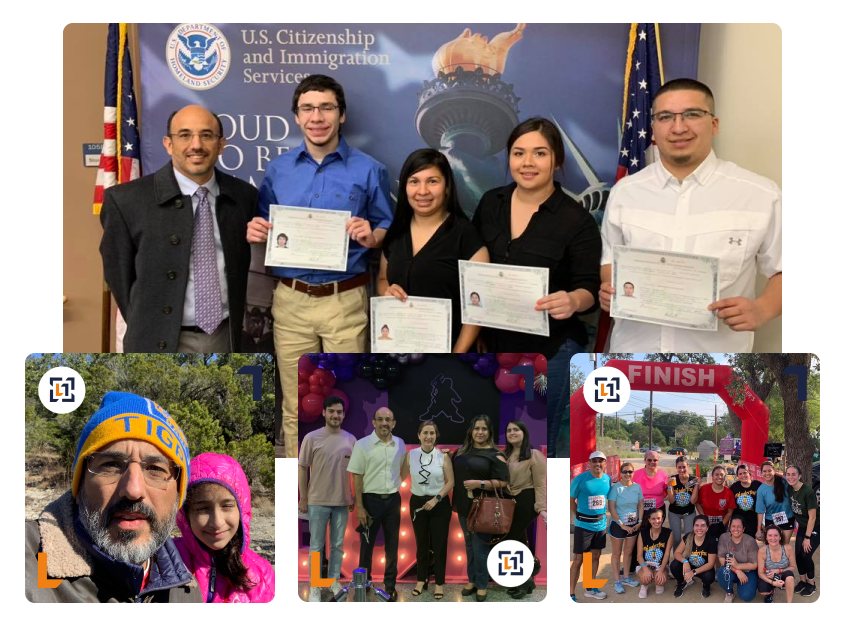Laredo TX H-1B Visa Attorney Helps Bring Talent To The US

Hiring highly trained professionals from abroad has become a reliable way for U.S. companies to stay ahead. In today’s competitive market, finding the right candidate for specialized roles can mean expanding the search globally. A Laredo TX H-1B visa attorney can help companies take full advantage of this opportunity by guiding them through the legal process of hiring skilled foreign workers.
Whether it’s tech, finance, healthcare, or engineering, the H-1B visa allows companies to bring in professionals for roles that require higher education and advanced knowledge. This article explores what the H-1B visa is, who qualifies, the filing steps, and why legal support is beneficial.
What Is The H-1B Visa?
The H-1B visa allows U.S. employers to hire foreign workers in specialty occupations. These jobs generally require at least a bachelor’s degree or its equivalent in a particular field of study. Common industries that use the H-1B program include information technology, engineering, finance, healthcare, architecture, and education.
An H-1B visa is initially valid for a maximum of three years. It can be extended to a maximum of six years, depending on the circumstances. This time frame gives employers the flexibility to keep valuable workers for longer projects or transition them to permanent roles. During this period, the employee is authorized to work only for the sponsoring employer and must remain in the approved job role.
H-1B also allows the worker’s immediate family—spouse and children under 21—to enter the U.S. under H-4 dependent visas. While H-4 visa holders are not automatically eligible to work, they can live, study, and, in certain cases, apply for work authorization. This helps families stay together while the employee contributes to their U.S. employer.
Think of the H-1B as a two-way benefit: it helps U.S. businesses fill workforce gaps while giving skilled professionals from other countries a chance to advance their careers. Now that the purpose of the visa is clear, the next step is understanding who qualifies to apply.
Who Is Eligible For An H-1B Visa?
Eligibility for this visa depends on two sides: the employee and the employer. The foreign worker must hold at least a bachelor’s degree or higher that directly relates to the job. For example, a software engineer should have a degree in computer science, not biology or art.
The position itself must also qualify as a “specialty occupation.” This means the job must require a degree as a standard qualification across the industry. Employers need to show that the role isn’t something that just anyone can perform—it must demand specific skills and knowledge.
Knowing who qualifies for an H-1B visa is just one side of the equation. Employers must also meet certain requirements to sponsor a foreign worker successfully. From preparing filings to meeting wage obligations, their role is just as important in the application process. Understanding these responsibilities helps ensure a smoother path forward.
What Are The Key Requirements For Employers?
Employers who want to sponsor a foreign individual through the H-1B visa must meet several conditions. These requirements are designed to protect both U.S. workers and the foreign professional being hired. Here’s what you need to know before filing a petition.
File A Labor Condition Application (LCA)
The first step is submitting a Labor Condition Application to the U.S. Department of Labor. The LCA confirms that the employer is paying the prevailing wage for the job and is maintaining fair working conditions. The wage must be equal to or higher than what is typically paid for similar positions in the same geographic area. Once approved, the LCA becomes a key document in the H-1B petition.
Offer A Valid Job In A Specialty Occupation
To qualify for the H-1B program, the employer must offer a job that meets the definition of a specialty occupation. Under USCIS guidelines, this is one that needs practical and theoretical application of highly specialized knowledge. It must also require at least a bachelor’s degree in a field related to the position.
USCIS recognizes many roles across various industries as specialty occupations. A few examples are software developers and civil engineers. In the healthcare field, positions such as registered nurses in specialized units or physical therapists can also qualify.
The connection between the job duties and the required degree must be clearly demonstrated. Employers should provide a job description that outlines specific responsibilities and explains why the position demands specialized education.
Comply With Wage & Worksite Requirements
Employers must pay the worker the higher of the actual wage paid to similar employees or the prevailing wage for the position and business location. In addition, they must maintain a public access file containing the LCA and related documents.
If the employee moves to a different worksite, an amended petition may be required to reflect the change. Employers are also expected to notify USCIS of any material job changes, such as shifts in duties, compensation, or job location. Failure to comply with wage or worksite rules can lead to audits and penalties.
Meeting the requirements as an employer lays the foundation for a successful petition. Once these conditions are in place, the next step is to move forward with the actual filing process. Each stage must be completed carefully and in order to avoid delays. Here’s how the application process unfolds, from start to finish.
What Are The Steps In The Application Process?
H-1B Registration
Employers must first create a USCIS online account and submit an electronic registration for each foreign worker they wish to sponsor. The registration period usually opens in early March and lasts about two weeks. Employers only need to provide basic information about the company and the employee. If the total registrants exceed the annual cap, USCIS uses a random lottery to select cases eligible for full petition filing.
Submit The Labor Condition Application
The employer files the LCA electronically through the Department of Labor’s FLAG system. They must ensure all information is accurate and matches what will be included in the H-1B petition. Filing can be done up to six months before the intended start date of employment. The Department of Labor typically takes around seven business days to process the application.
File Form I-129 With USCIS
Once the LCA is certified, the employer must file Form I-129, or the Petition for a Nonimmigrant Worker, withU.S. Citizenship and Immigration Services (USCIS). This petition includes the approved LCA, a detailed job description, proof of the foreign worker’s qualifications, and evidence that the company is actively operating.
Filing fees must also be submitted with the petition, and these vary based on the size of the company and the type of filing. Accuracy is key—any inconsistencies can lead to delays or denials. At this stage, the petition tells the full story of the job, the worker, and the employer’s intent.
Wait For Decision Or RFE
After filing Form I-129, the petition enters the review stage with USCIS. If the application is complete and well-documented, it may be approved without additional steps. However, if USCIS needs more details or clarification, it will issue a Request for Evidence (RFE). An RFE pauses the review process and gives the employer a specific deadline to submit the required information.
Each step in this process has weight. A small error early on can cause ripple effects later, making preparation and guidance all the more important. Employers who want to get it right the first time can turn to an experienced immigration lawyer. Working with an H-1B visa attorney can make a significant difference in your application.
Why Work With A Laredo TX H-1B Visa Attorney?
Partnering with an attorney who focuses on employment-based immigration can help employers avoid common mistakes and delays. Legal guidance adds structure, strategy, and peace of mind to a process that involves multiple government agencies and strict timelines. Here’s how a Laredo TX H-1B visa lawyer can support your business.
- Reviews job titles and wage levels to ensure alignment with H-1B requirements.
- Prepares and organizes documentation to support every aspect of the petition.
- Monitors USCIS policy changes and adjusts strategies based on current trends.
- Advises on job descriptions to match degree requirements and justify specialty occupation.
- Responds to Requests for Evidence (RFEs) with clear and timely submissions.
- Assists during audits or compliance checks to protect the employer’s filing eligibility.
Hiring legal support isn’t just about completing forms—it’s building a complete and accurate case. An attorney helps present your company and job opportunity in the strongest light. This is especially helpful when dealing with tight filing windows and high-stakes applications.
Choosing a local attorney also means more direct communication and a better understanding of Texas business needs. A Laredo TX H-1B visa law firm brings both national insight and regional awareness to your case. When your company’s future growth depends on the right talent, working with a trusted firm can make the process smoother and less stressful.
How Can Lozano Law Firm Help?

Real Clients, Real Testimonials
-
Israel Google Client Review
I had an excellent experience with lazano Law Firm The team was professional, knowledgeable, and incredibly supportive throughout my immigration process. They took the time to explain every step, answered all my questions promptly, and made a stressful situation much easier to manage. I truly felt they cared about my case and worked hard to ensure everything was done properly and efficiently. I highly recommend them to anyone needing immigration assistance. Thank you for your outstanding service!
Read more -
Clarissa Gaytan Google Client Review
This team was excellent to us, they are very prompt and organized. If we were missing something they would notify us that same day. If I had questions they would reply quickly to all my emails. All around very helpful and professional group.
Read more -
Felix Sanchez Google Client Review
As I've worked with lozano law firm they been sooo much help guiding us helping us understand from sheila from maribel from ms gloria and josue they been sooo much help helpful so dedicated to help me and my family to reunite thank u guys from the bottom of my heart.
Read more -
Kara Wilson Google Client Review
Absolutely fantastic! I could not have asked for a better experience. Mr. Lozano was incredibly competent, kind, supportive and professional. He went above and beyond to understand our case and help us. I highly recommend him!
Read more -
Victor Ramirez Google Client Review
Lozano Law firm Made the process to adjust immigration status so easy. They walked us through everything and Made sure we had all the requirements and were well prepared for the interview. They helped us to have a quick smooth process
Read more -
Uliks Sula Google Client Review
I want to say thank you to lozano office and for sure to the amazing crew they have becouse they are very helpful full and educated on them job so I would say to any one is not point to shop around even because the money because they are the best they would be there for you like how they are for me they care that is the most important for me thank you again 0/10 I would say easy 300% recommend . 😀😀😀
Read more -
Anneke Raaths Google Client Review
The Lozano Law Firm is a great resource for anyone with immigration needs. They were professional, quick, and VERY helpful in guiding me through the process. I really appreciated their ability to send documents through email--safely and securely.
They were great in keeping me updated on any new developments in my immigration case and provided me with help during the more stressful times. I would definitely recommend them and will be using their services again!!
Read more
Contact Our Immigration Lawyer
Contact Us Today For A Free Case Evaluation!
We respect your privacy. The information you provide will be used to answer your question or to schedule and appointment if requested.



